As Freemasons, most of us are familiar with much or all of the story of WBro. George Washinton’s first Inaugural may be in dispute. Contemporaries who were present reported slightly different versions of the events. It is an understatement to say they were making it up as they went along. The fact is they did make it up as they went, there was no provision in the founding documents at the time on how to install the President of the United States. So how did it come to be?
Well, if we set the scene that was unfolding at the time things may get a little clearer on who could have come up with the appropriate honors and oath of office for the 1st inauguration. On April 14th George Washington was unanimously elected to be the 1st President of the United States of America. After he received the notice of his election on April 16th at his home in Mount Vernon, Washington left for New York. Accompanied by Charles Thompson, his official escort, and Col. David Humphreys, his aide, he traveled through Alexandria, Baltimore, Wilmington, Philadelphia, Trenton, Princeton, New Brunswick, and Bridgetown (now Rahway, NJ).
At these and other places along his route, the artillery roared a salute of honor, and the citizens and officials presented him with marks of affection and honor so that his trip became a triumphal procession. On April 23, he crossed the bay from Bridgetown to New York City in a magnificent barge built especially for the occasion. 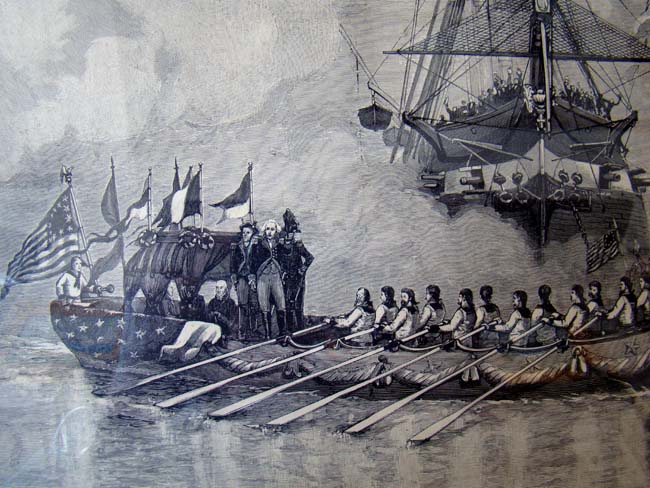
Lacking precedents to guide them in their preparations for the first Presidential inaugural, Congress appointed a joint committee to consider the time, place, and manner in which to administer to the President the oath of office required by the Constitution. Certain difficulties in planning and arrangements arose from the fact that Congress was meeting in New York’s former City Hall, rechristened Federal Hall, which was in the process of renovation under the direction of Pierre L’Enfant.
On April 25, Congress adopted the joint committee’s recommendation that the inaugural ceremonies be held the following Thursday, April 30, and that the oath of office be administered to the President in the Representatives’ Chamber. The final report of the committee slightly revised this plan with its recommendation that the oath be administered in the outer gallery adjoining the Senate Chamber, “to the end that the Oath of Office may be administered to the President in the most public manner and that the greatest number of people of the United States, and without distinction, may witness the solemnity.” But what exactly the Oath of Office of the President would be was not clear.
At Federal Hall, Vice President John Adams, the Senate, and the House of Representatives awaited the President’s arrival in the Senate Chamber. After being received by Congress, Washington stepped from the chamber onto the balcony, where he was followed by the Senators and Representatives.
Before the assembled crowd of spectators, Robert Livingston, Chancellor of the State of New York, administered the oath of office prescribed by the Constitution: “I do solemnly swear that I will faithfully execute the office of President of the United States, and will, to the best of my ability, preserve, protect, and defend the Constitution of the United States.” After repeating this oath, Washington kissed the Bible held for him by the Chancellor, who called out, “Long live George Washington, President of the United States,” and a salvo of 13 cannons was discharged. There are some contemporary versions that stated that President Washinton also added the all too familiar “So help me God” to the end, but this is disputed or wasn’t heard by all. However, this makes perfect sense to all Brothers would have heard this or would hear this in the future.
Except for taking the oath, the law required no further inaugural ceremonies. But, upon reentering the Senate Chamber, the President read the following address:
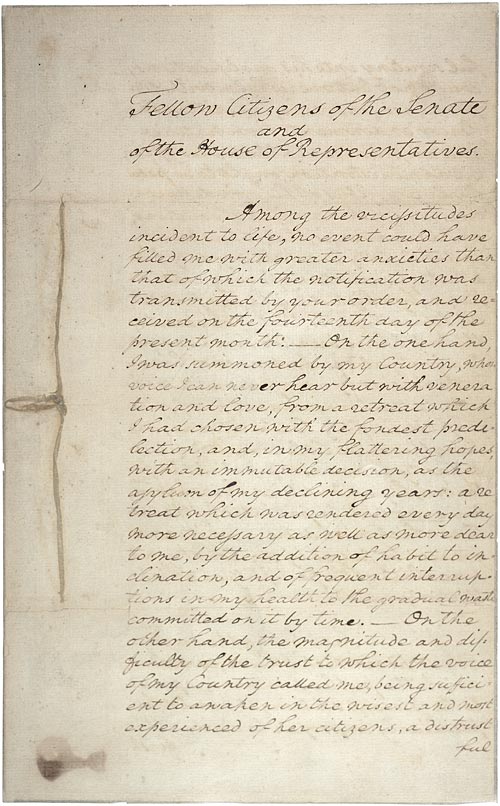
Click the image for a transcript of the address
After this address, he and the members of Congress proceeded to St. Paul’s Church for divine service. A brilliant fireworks display in the evening ended the official program for this historic day.
What was not widely reported was the Bible on which WBro. Washinton took his oath of office on. When Washinton arrived at Federal Hall that day and Chancelor Livingston was preparing for administering the oath, it was discovered that there was no Bible for WBro. Washinton to place his right hand on while taking the oath. In the group present during this discussion was W:. Jacon Morton, who happened to be the Worshipful Master of St. John’s Lodge No. 1 and was tasked with obtaining the Bible from the Lodge that Chancelor Robert Livingston would hold before WBro. Washington for him to take the oath of office on. St. John’s Lodge A.Y.M. has retained custodianship of this Altar Bible ever since.
Several Presidents have requested the Washington inaugural Bible to be used at their inauguration. The Bible has since been used for the inaugurations of Warren G. Harding in 1921, Dwight D. Eisenhower in 1953, Jimmy Carter in 1977, and George H. W. Bush, whose 1989 inauguration was in the bicentennial year of Washington’s. The Bible was also intended to be used for the first inauguration of George W. Bush, but heavy rain didn’t allow it. However, the Bible was present in the Capitol Building in the care of three Freemasons of St. John’s Lodge, in case the weather got better.
In addition to its duties, the Bible has been used in the funeral processions of Presidents Washington and Abraham Lincoln. The Bible has also been used at the cornerstone laying of the U.S. Capitol, the dedication of the Washington Monument, the centennials of the cornerstone laying of the White House, U.S. Capitol, and the Statue of Liberty, the 1964 World’s Fair as well as the launching of the aircraft carrier USS George Washington. It has also been used at cornerstone ceremonies for Masonic temples in Boston in 1867, Philadelphia in 1869.
In recent years, it has been displayed in New York at the Federal Hall National Memorial, located on the site of Washington’s inauguration, and the New York Historical Society, and in Washington, D.C. at the Smithsonian and the United States Capitol Visitor Center. 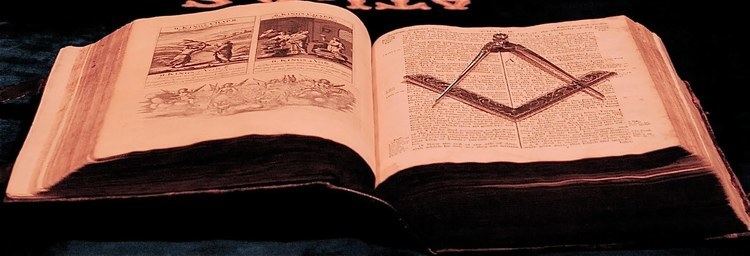
How many of us would like to have the honor of taking our obligation(s) on this particular Bible? Well, there is a chance that you can get as close to that as possible. On Monday March 3rd, 2025, you may get your chance!
Join M:.W:. Steve Adam Rubin, Grand Master of Masons at Lynbrook-Massapequa Lodge No. 822 as the George Washinton Inaugural Bible will be there and Masons present will reaffirm their commitment to Freemasonry and a raffle drawing will give someone a chance to kneel before this historic Bible at the Altar.
For more information, please see the event as it is a ticket paid event – Click Here!
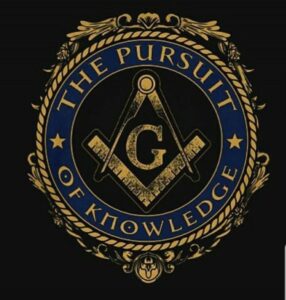
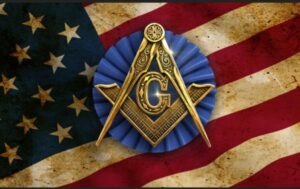



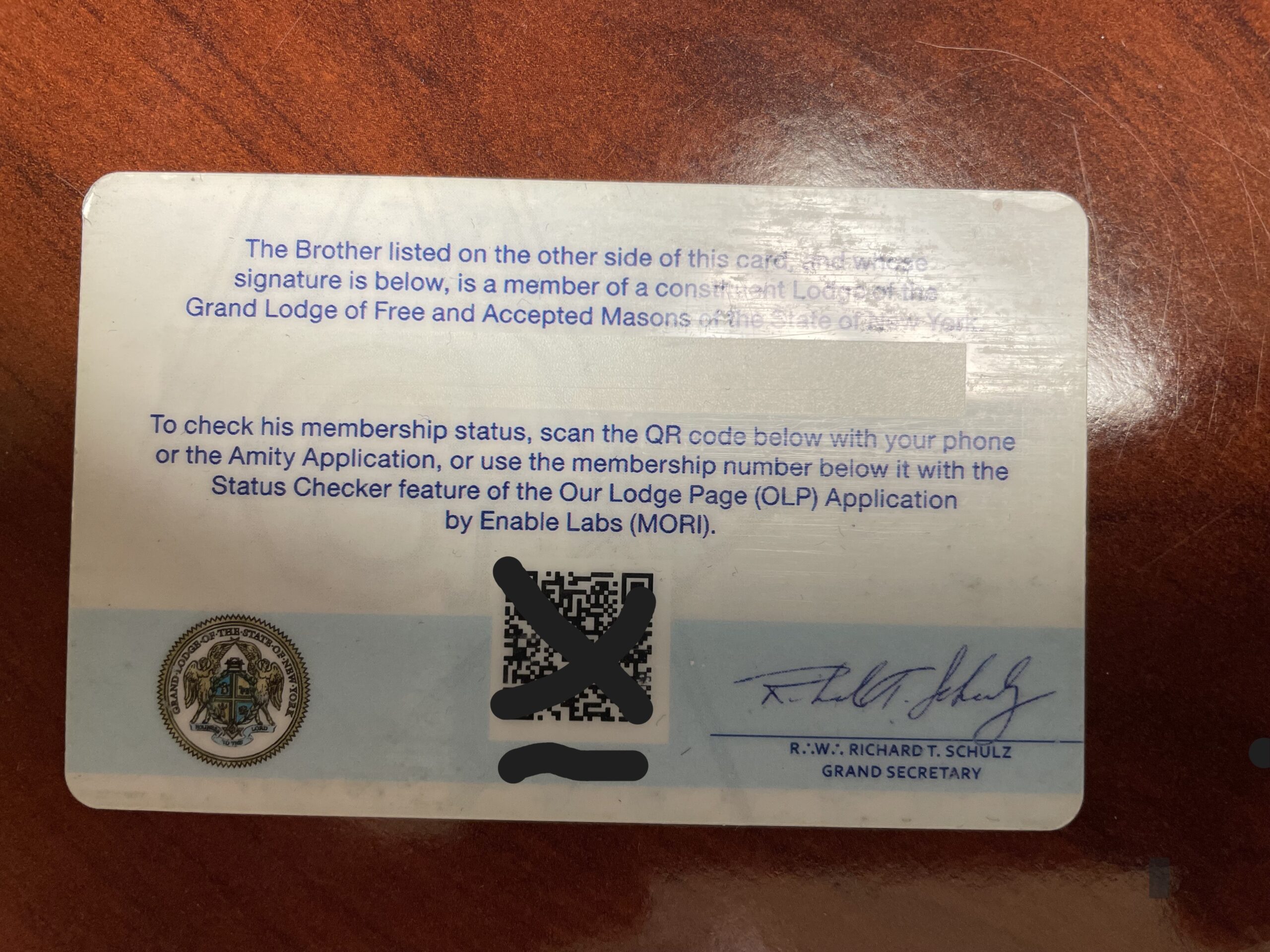 A quick scan of the QR code on the card using the
A quick scan of the QR code on the card using the 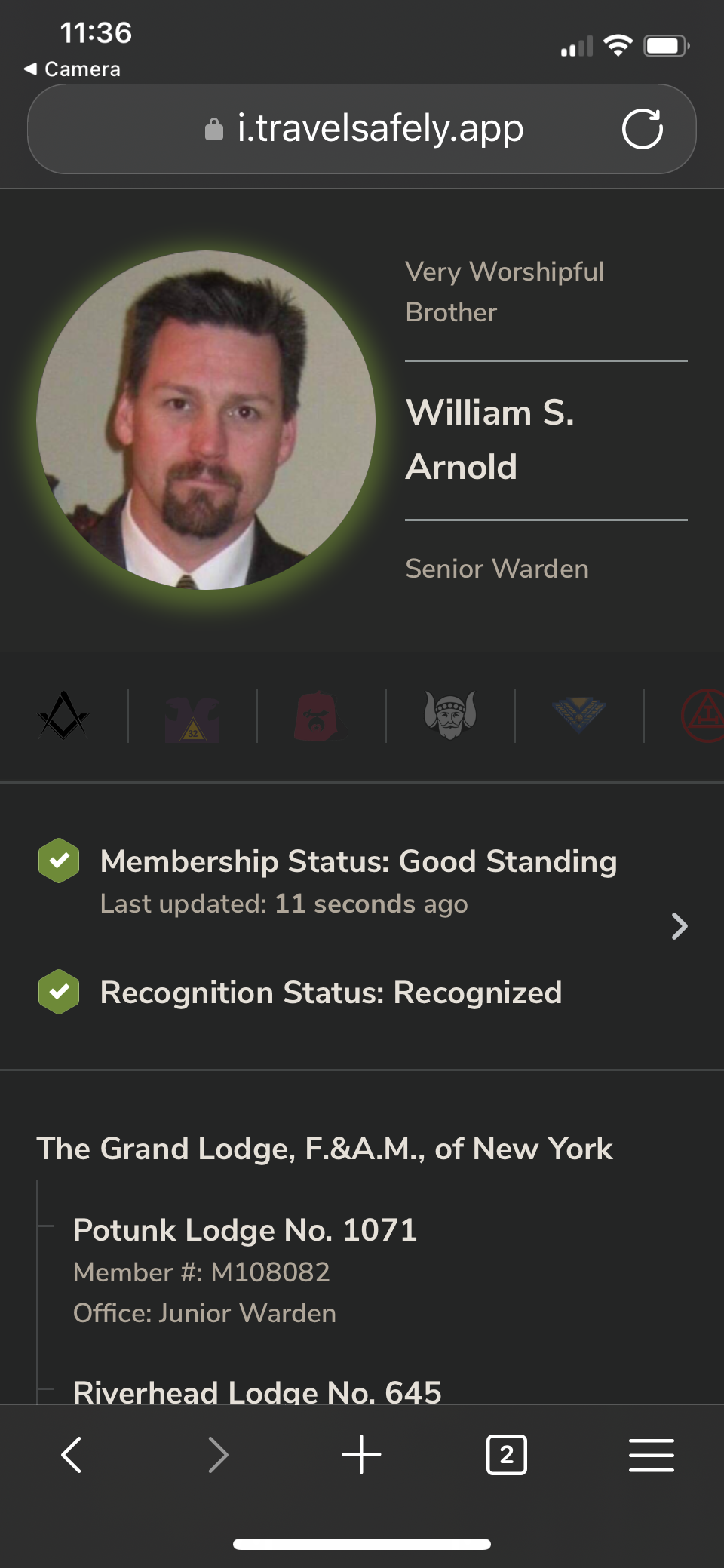 We all encourage our Brothers to travel and it’s one of the best benefits of being a Brother. However just showing up at a Lodge where nobody knows who you are, well you should not be offended if you are challenged before you are allowed to join the meeting.
We all encourage our Brothers to travel and it’s one of the best benefits of being a Brother. However just showing up at a Lodge where nobody knows who you are, well you should not be offended if you are challenged before you are allowed to join the meeting.